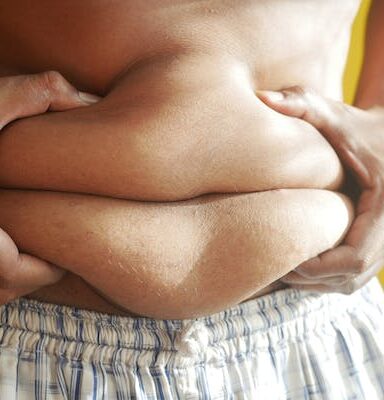Even though losing weight in just seven days is difficult, it is doable with the appropriate strategy. It is crucial to keep in mind that rapid weight reduction is not long-term sustainable, thus it is always wise to speak with a healthcare provider before starting any lose weight programme.
The significance of keeping a healthy weight: A healthy weight is essential for general health and wellbeing. Numerous health issues, such as heart disease, diabetes, high blood pressure, arthritis, and sleep apnea, can be brought on by being overweight.
Benefits of lose weight
Numerous advantages might result from weight loss, including:
- increased cardiovascular fitness.
- decreased likelihood of contracting chronic illnesses.
- improved mood and mental health improved physical look improved energy levels improved sleep quality.
- An overview of the seven-day diet.
- Here are some pointers for a seven-day diet.
Reduce your calorie intake: In order to lose weight, you must generate a calorie deficit, which is done by taking in less calories than you expend. Make an effort to consume 500–1000 less calories each day.
Increasing your protein consumption might help you feel more pleased and full because it is a necessary nutrient. Lean sources of protein, such as chicken, fish, tofu, and lentils, should be incorporated into your meals.
Limit your consumption of carbohydrates since they can cause weight gain, particularly if they come from processed foods like white bread and spaghetti. Fruits, vegetables, and whole grains should be used in their stead.
Drink plenty of water: Hydration is key to weight reduction since it helps suppress hunger and speed up metabolism. Aim for 8 to 10 glasses of water a day, minimum.
Exercise frequently: Exercise is crucial for general health and weight reduction. Plan to engage in moderate-intensity activity for at least 30 minutes each day, such as brisk walking, running, cycling, or swimming.
Get adequate sleep: Sleep is crucial for weight reduction since it can assist balance hormones that affect metabolism and hunger. Sleep for 7-8 hours every night.
Set realistic goals
When trying to lose weight, it’s important to set reasonable goals. Setting unrealistic objectives can cause disappointment and anger, which makes it more difficult to maintain a healthy lifestyle over time. Here are some pointers for establishing attainable weight reduction objectives:
The Value of Setting Realistic Goals
Achievable objectives may keep you focused and motivated during your weight reduction journey.
Consistency: Achieving minor goals on a regular basis can result in long-term success.
Confidence: Reaching minor goals can increase your self-assurance and increase your likelihood of continuing to strive towards bigger ones.
Monitoring progress: Achievable goals make it simpler to monitor your progress and make any plan adjustments.
Setting Realistic Weight Loss Goals: Some Advice
Speak with a healthcare provider: Based on your particular requirements and current state of health, a healthcare expert may assist you in choosing a healthy weight reduction objective.
Be precise: Establish precise, quantifiable, and doable objectives. For instance, set a goal of losing 1-2 pounds every week as opposed to a general one like “losing weight.”
Take it apart: Divide more challenging objectives into smaller, more manageable ones. Instead of immediately attempting to run a marathon, for instance, set a goal to exercise for 30 minutes each day.
Focus on behaviors: Set objectives that focus on behaviors that will help you accomplish your weight reduction goal rather than just the number on the scale, such as preparing more meals at home or drinking more water.
Celebrate your tiny successes. Recognizing your accomplishments helps keep you inspired and self-assured. Celebrate, for instance, when you reach a certain weight reduction goal or when you stick to a healthy eating plan for a whole week.
Be adaptable: Keep in mind that not all weight reduction is linear and that setbacks are common. To keep going along, be flexible with your goals and modify your approach as necessary.
Follow a healthy diet for lose weight
A healthy diet must be followed in order to lose weight. A nutritious diet can enhance nutrient absorption, let people consume fewer calories, and promote general health. Here is a summary of how nutrition affects weight reduction, a list of foods to consume and stay away from, and an example seven-day meal plan:
Diet plays an important part in weight loss since it creates a calorie deficit, or eating less than you burn. This calorie deficit can be aided by a balanced diet, which also supplies the nutrients essential for good health. Variety of nutrient-dense foods, such as fruits, vegetables, whole grains, lean proteins, and healthy fats, should be part of a balanced diet for weight loss.
How to Eat and Avoid Problems:
with order to aid with weight reduction, try to
Consume a lot of fruits and vegetables since they are high in fibre and low in calories, which can help you feel content and full.
Choosing whole grains can help control blood sugar levels since they are an excellent source of fibre, vitamins, and minerals.
Include lean protein: Without adding extra calories, lean sources of protein can help you feel content and full. Chicken, fish, tofu, and beans are among examples.
Consume good fats: Healthy fats, including those in avocados, nuts, seeds, and olive oil, can help you feel full while also supplying vital nutrients.
Take in a lot of water: Reducing hunger and supporting weight reduction are two benefits of being hydrated.
Avoid these to aid in weight loss:
Foods that have been processed: Foods that have been processed are frequently heavy in calories, sugar, and bad fats, which can lead to weight gain.
Sugary beverages: Sugary beverages, including juice and soda, are high in calories and may cause weight gain.
Fried foods: Fried meals frequently include a lot of calories and bad fats, which can lead to weight gain.
Drink plenty of water
Any weight loss regimen must include a lot of water consumption. The advantages of drinking water for weight reduction, how much water to consume each day, and some advice for remaining hydrated are summarised below:
Water Drinking Promotes Weight Loss
increases sensations of fullness, which might encourage cutting back on calorie consumption.
may boost calorie burn and metabolism.
can lessen bloating and water retention.
may aid in the body’s removal of toxins and waste.
How Much Water Should I Drink Every Day? Your daily water requirements might change based on your age, sex, degree of exercise, and environment. As a general rule, try to consume eight glasses (64 ounces) or more of water each day. However, if you exercise frequently or live in a warm environment, you might need to drink more.
Remaining Hydrated Advice:
Always keep water on hand by carrying a water bottle with you everywhere you go.
Put reminders for yourself to drink water throughout the day on your phone or computer.
Before every meal, sip a glass of water to assist lower calorie consumption.
Drink water instead of sugary beverages, which might cause weight gain.
Eat meals high in water, such



